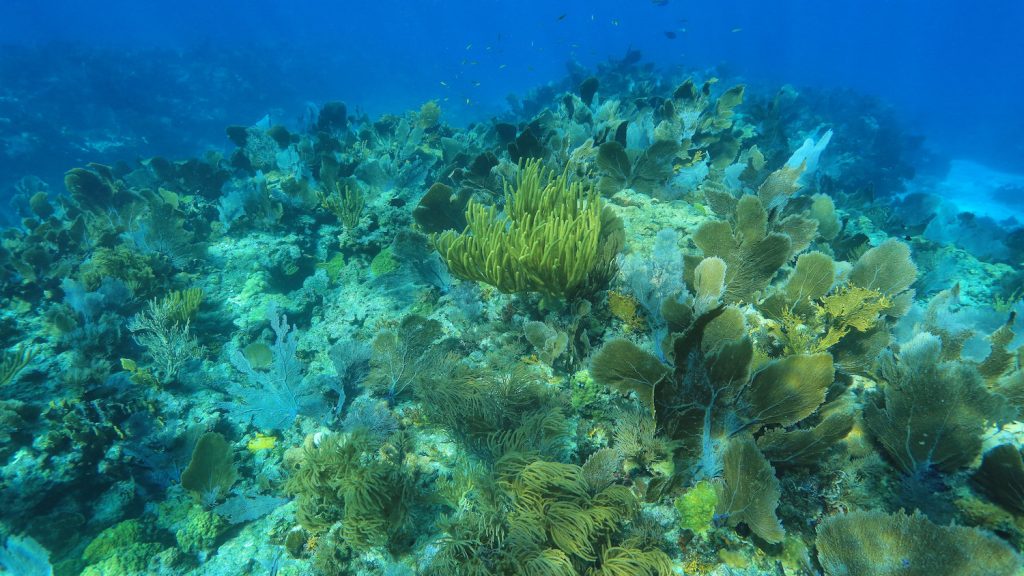Impact of Ocean Warming and Acidification on Growth of Reef-Building Corals

Principal Investigator: Ilsa B. Kuffner, Research Ecologist, USGS St. Petersburg Coastal and Marine Science Center
Project Completion: January 2013. This project has now been completed.
Implements Science Plan Theme: 3 and 5
Overview
Coral reefs are some of the most biologically rich and economically valuable ecosystems in the world. They provide food, fishing, and recreation opportunities for millions of people, protect coastlines from storms, and shelter thousands of plant and animal species. However, climate change is contributing to the degradation of coral reefs in two significant ways: warming temperature and increasing acidification of ocean waters. Scientists are actively working to gather more specific information about how these factors will impact coral reef ecosystems.
The purpose of this study was to identify differences in climate vulnerability among three important reef-building coral species in the Florida Keys. Researchers used coral cores to investigate the effects of temperature and decreasing ocean pH on coral growth over the last 150 years. Such information is useful for resource management decision-making regarding reef restoration and species protection policies. It also establishes a baseline for coral growth rates that can be referenced as ocean conditions continue to change.
More Information
- This study was a part of a larger effort to investigate the response of corals to changing ocean conditions in the Florida / Caribbean region. Learn more about the Coral Reef Ecosystem Studies project.
- View the professional page for Principal Investigator Ilsa Kuffner.
